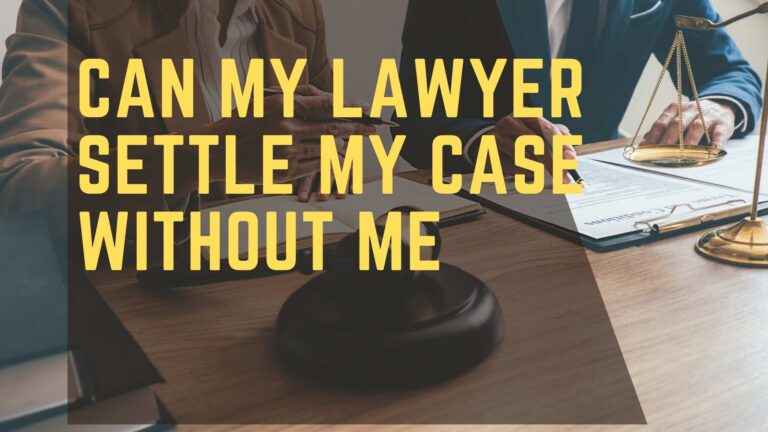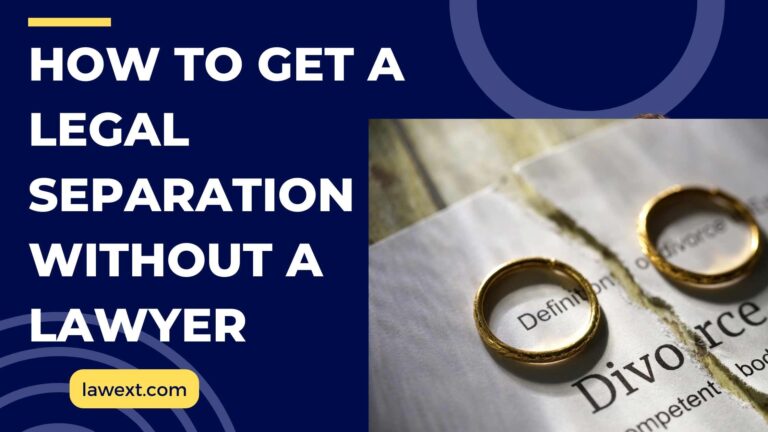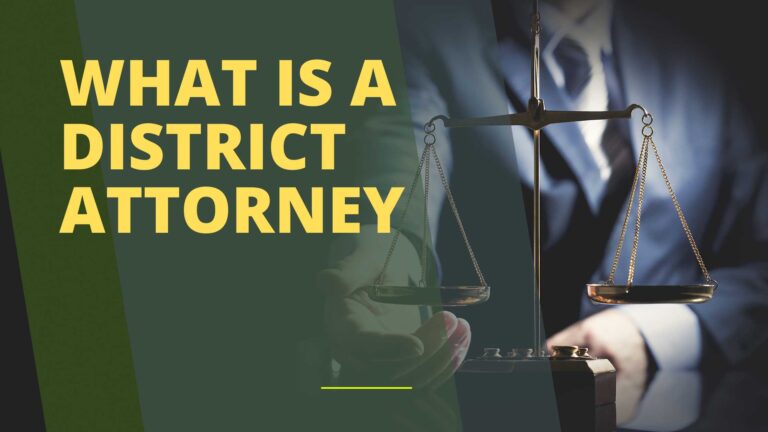When Should a Tenant Hire a Lawyer?
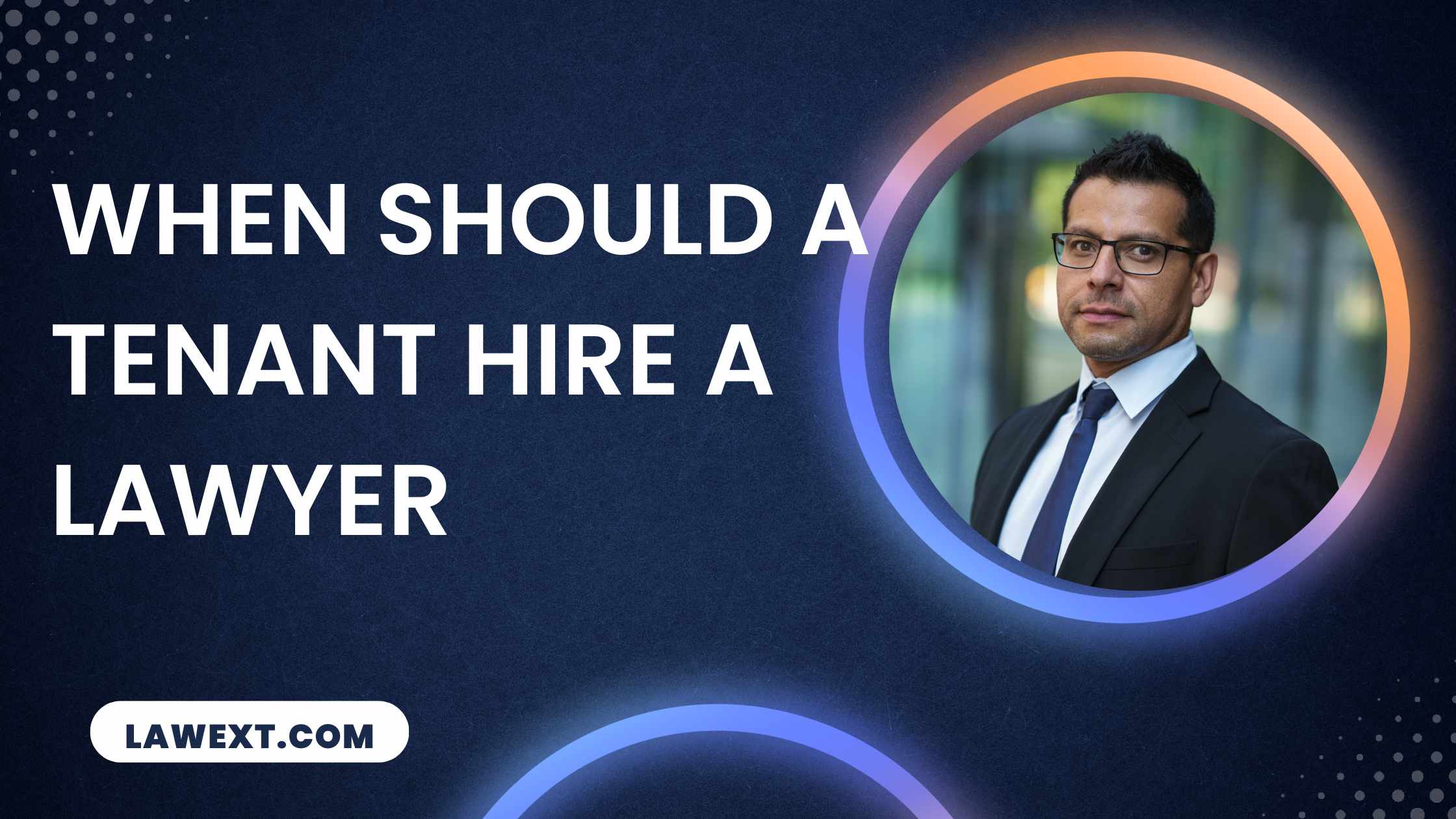
A tenant should hire a lawyer when facing eviction or lease violations, or when dealing with disputes with their landlord that cannot be resolved amicably. Dealing with issues as a tenant can sometimes become complicated, especially when it comes to legal matters.
Table of Contents
While renting a property, tenants may encounter various situations that require professional assistance. Knowing when to hire a lawyer can save tenants from unnecessary stress and protect their rights. Seeking legal counsel is crucial in cases of eviction, lease violations, or if efforts to resolve disputes with the landlord reach a dead end.
This article explores the circumstances that warrant the involvement of a lawyer and highlights the importance of seeking appropriate legal representation for tenants. By understanding these situations, tenants can confidently navigate the complexities of the rental process, ensuring their rights are safeguarded.
Reasons To Hire A Lawyer
When renting a property, tenants need to be aware of their rights and responsibilities. While many issues can be resolved through communication and negotiation, there are certain situations in which it is necessary to seek legal assistance. Hiring a lawyer can help tenants navigate complex legal processes and ensure their rights are protected. Here are three common scenarios in which tenants should consider hiring a lawyer:
Eviction
Dealing with an eviction notice can be incredibly stressful for tenants. Whether you believe the eviction is unjust or you are facing financial difficulties that could be resolved with more time, a lawyer can help protect your rights and provide guidance throughout the eviction process. They can assess the validity of the eviction notice, review your lease agreement, and represent you in court if necessary. A lawyer can also help negotiate with your landlord to reach a more favorable resolution.
Lease Agreement Disputes
Disputes surrounding a lease agreement can arise at any time during your tenancy. From disagreements over repairs and maintenance responsibilities to disputes related to rent increases or lease renewals, a lawyer can help interpret your lease agreement and advise you on the best course of action. They can assist in negotiating with your landlord to resolve conflicts, and if necessary, represent you in court to protect your rights and interests. Having a lawyer by your side can ensure that your lease agreement is fair and legally binding.
Security Deposit Disputes
Getting your security deposit back at the end of your tenancy can sometimes be a challenge. Landlords may wrongfully withhold or deduct from your deposit, leading to disagreements and disputes. An experienced lawyer can review your lease agreement, assess the condition of the property, and help you collect evidence to support your claim for the return of your security deposit. They can also represent you in negotiations or take legal action if needed, ensuring that your rights as a tenant are protected and that you receive a fair resolution to the dispute.
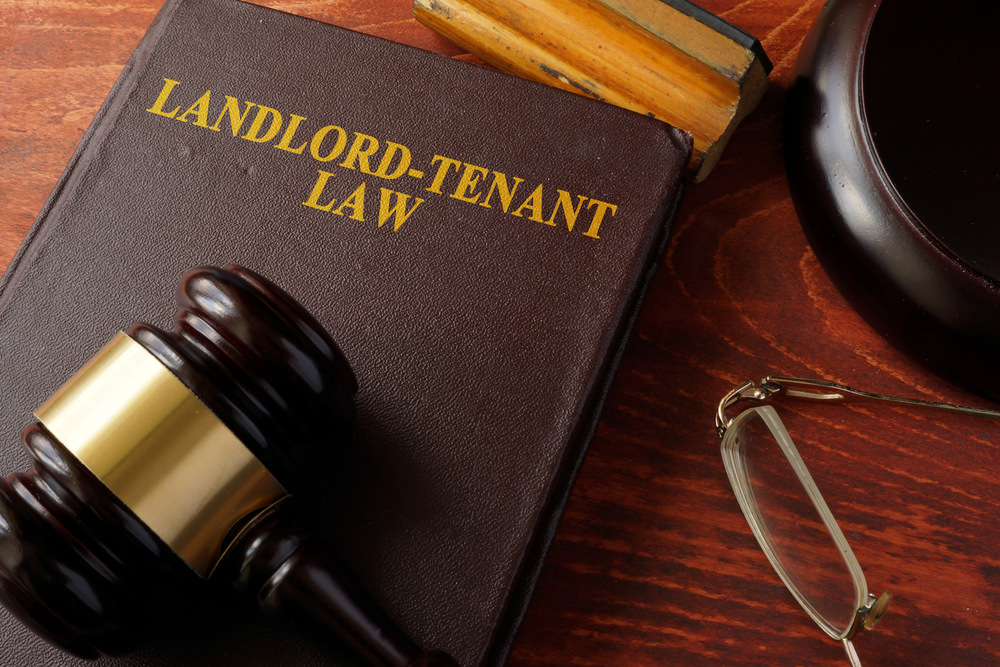
Understanding Tenant’s Rights
Understanding Tenant’s Rights is crucial for tenants to ensure they are treated fairly and lawfully by their landlords. By having a clear understanding of their rights, tenants can ensure they are not taken advantage of and can seek legal assistance when necessary.
Legal Obligations Of Landlords
Tenants should be aware of the legal obligations that landlords are required to fulfill. These include maintaining the property in a habitable condition, addressing any necessary repairs in a timely manner, providing essential services such as heating and hot water, and respecting the tenant’s right to privacy.
Protection Against Unfair Practices
Tenants have the right to be protected against unfair practices, such as illegal eviction, harassment, discrimination, and retaliation. If a tenant believes they are being subjected to any of these unfair practices, they have the right to seek legal assistance to protect their rights and ensure they are treated by the law.
Navigating Legal Procedures
When it comes to legal matters as a tenant, it is crucial to have a clear understanding of the procedures involved. From filing complaints to responding to legal notices, these processes can be complex and overwhelming for those unfamiliar with the legal system. Hiring a lawyer to guide you through these procedures can make a significant difference in protecting your rights and ensuring a favorable outcome.
Filing Complaints
One of the common situations where tenants may require legal assistance is when filing complaints against their landlord. Whether it’s related to maintenance issues, habitability concerns, or lease violations, knowing how to properly file a complaint is essential. A lawyer can help you navigate through the process, advising you on the required documentation, deadlines, and the appropriate channels to ensure your complaint is taken seriously.
Responding To Legal Notices
Receiving a legal notice as a tenant can be stressful, especially if you are unfamiliar with the legal jargon or your rights. Whether it’s an eviction notice, lease termination, or a violation accusation, it’s crucial to respond appropriately and within the given timeframe. By hiring a lawyer, you can gain valuable guidance in preparing your response, understanding the legal implications, and ensuring that you protect your rights as a tenant.
Negotiating Settlements
A tenant should consider hiring a lawyer when negotiating settlements to better navigate legal complexities and protect their rights throughout the process. An attorney can provide expert advice and ensure a fair resolution is reached promptly.
Rent Reductions
In some cases, tenants may find themselves in situations where they believe they deserve a rent reduction. This can occur when there are significant issues with the rental property that the landlord has failed to address, such as leaks, pest infestations, or structural damage. Hiring a lawyer can help tenants negotiate a fair reduction in rent to compensate for these problems.
Lease Termination Agreements
When tenants are faced with the need to terminate a lease agreement prematurely, it can be a complex and potentially costly process. Hiring a lawyer can help tenants navigate the legal aspects of lease termination and negotiate a favorable agreement with the landlord. Whether it’s due to unforeseen circumstances such as job relocation or health issues, a lawyer can provide assistance in protecting the tenant’s rights and minimizing any potential financial repercussions.
Another instance where hiring a lawyer may be beneficial for tenants is when negotiating settlements. This can involve various issues that arise during the course of a tenancy and require legal expertise to ensure the tenant’s interests are protected.
Rent Reductions
When tenants are facing ongoing issues with the rental property that negatively affect their quality of life or violate the terms of their lease agreement, a lawyer can be instrumental in negotiating a fair rent reduction. This can help tenants receive compensation for any damages, inconveniences, or loss of enjoyment they have experienced due to the landlord’s negligence. With legal representation, tenants have a better chance of achieving a favorable outcome in these negotiations.
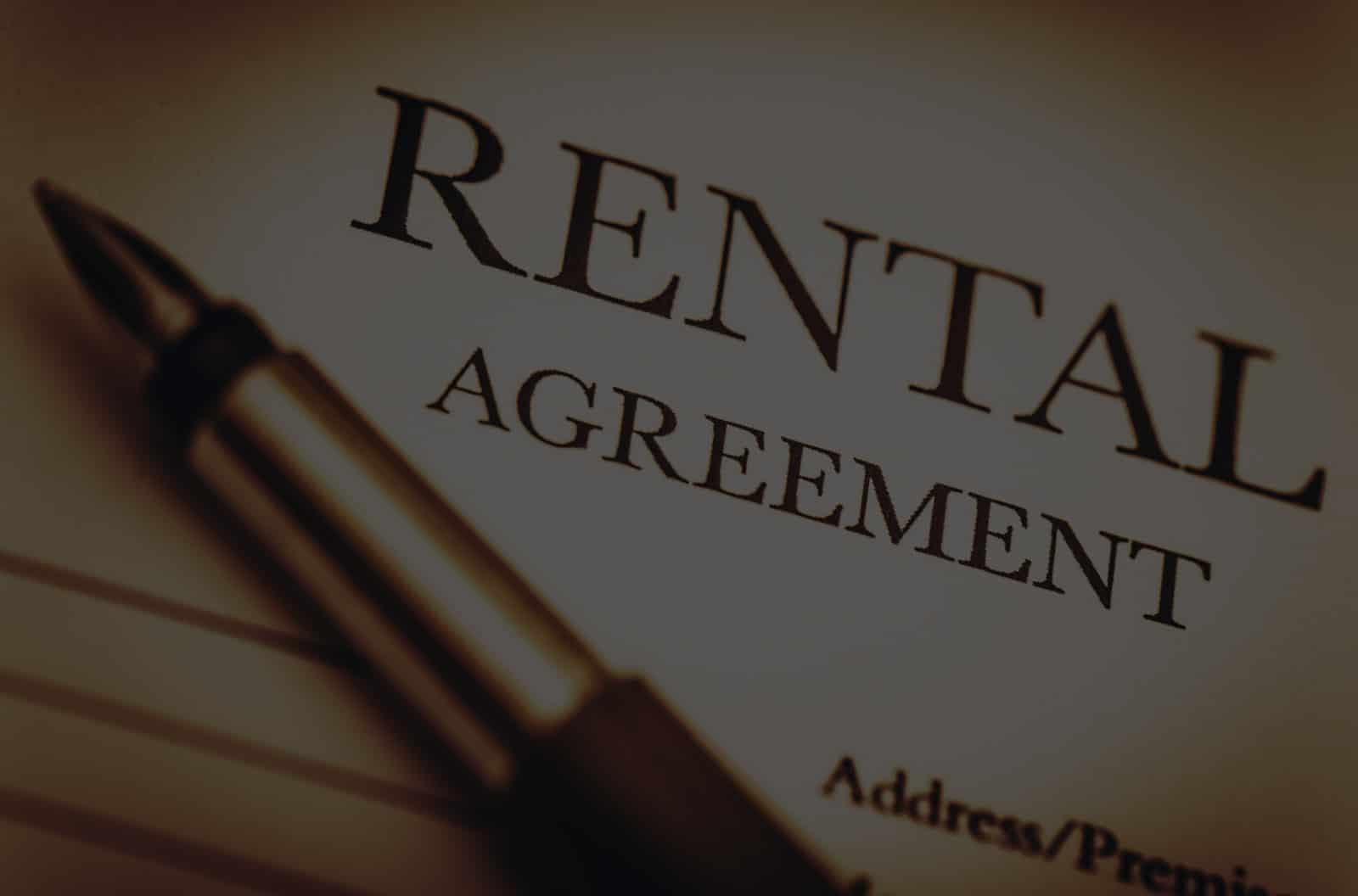
Lease Termination Agreements
Sometimes, tenants may wish to terminate their lease agreement before its scheduled end. This could be due to a change in personal circumstances, such as a job loss or the need to relocate. In such cases, hiring a lawyer can facilitate negotiations with the landlord to reach a mutually agreeable lease termination agreement. Lawyers can ensure that tenants are aware of their rights, help them understand the legal implications of breaking a lease, and work towards minimizing financial consequences.
When it comes to negotiating settlements as a tenant, having a lawyer by your side can provide valuable guidance and expertise. Whether it’s negotiating rent reductions or lease termination agreements, legal representation increases the tenant’s chances of achieving a favorable outcome. By understanding the circumstances that warrant hiring a lawyer and taking timely action, tenants can protect their rights and secure the best possible resolution to their rental issues.
Defense Against Wrongful Eviction
When a tenant is facing a wrongful eviction, seeking legal assistance can be crucial in protecting their rights and securing their housing. Wrongful eviction can lead to significant stress and inconvenience for tenants, making it essential to have a knowledgeable legal advocate in their corner.
Unlawful Eviction Practices
Unlawful eviction practices can take various forms, including changing locks, removing personal belongings, or shutting off utilities without a court order. These actions violate a tenant’s rights and can warrant legal action to seek remedies and justice.
Proving Retaliation Or Discrimination
Proving retaliation or discrimination in the context of eviction can be challenging but essential. Tenants facing eviction based on retaliation for exercising their rights or discrimination based on protected characteristics such as race, gender, or disability may need legal assistance to gather evidence and navigate the complex legal process.
Conclusion
Knowing when to hire a tenant lawyer can make a significant difference. Whether dealing with lease disputes, eviction threats, or security deposit issues, having legal support can ensure your rights are protected. By understanding your rights and seeking legal assistance when necessary, tenants can navigate the challenges of renting with confidence.
Amelia Justiceberg, a distinguished legal luminary, thrives on the intersection of empathy and legal acumen. As a prominent family law attorney, she orchestrates compassionate resolutions amidst complex dynamics. Justiceberg's courtroom finesse and dedication to fairness define her practice. Beyond litigation, she ardently advocates for social justice, solidifying her reputation as an influential force in the legal landscape.


